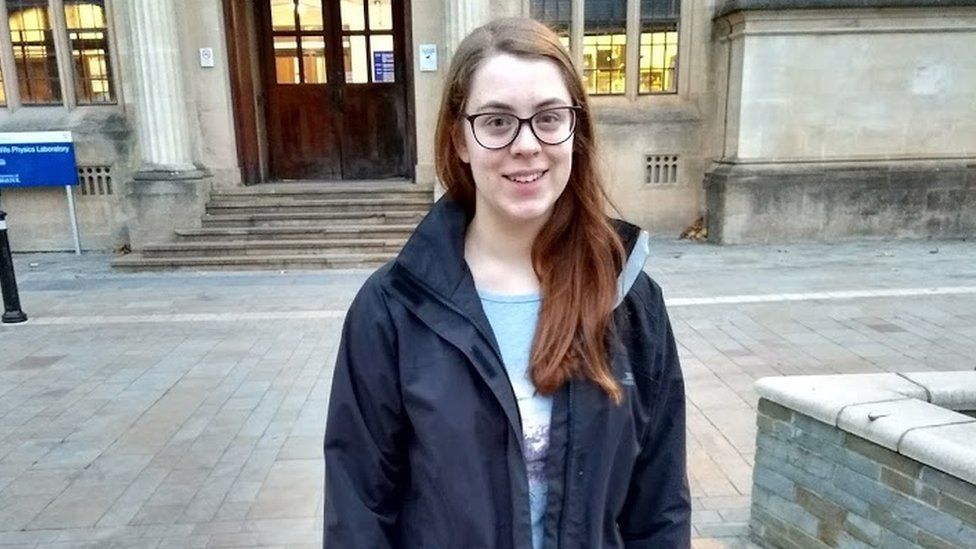26 minutes ago
About sharing
A university’s appeal against a judgement that it contributed to the death of a student by discriminating against her has been rejected.
Natasha Abrahart, 20, took her own life in 2018 on the day she was due to take part in a group presentation at the University of Bristol (UoB).
Ms Abrahart had been suffering from chronic social anxiety disorder.
The High Court upheld the decision that the university had failed to make reasonable adjustments for Ms Abrahart.
Ms Abrahart’s father, Dr Robert Abrahart, brought legal action against the university by alleging it had contributed to his daughter’s death by discriminating against her on the grounds of disability.
In May 2022, a judge ruled in favour of Mr Abrahart, and ordered the university to pay damages of £50,518 to Ms Abrahart’s family.
In a 62-page judgement delivered earlier, Mr Justice Linden found that the university had failed on all seven of its grounds of appeal.
He ruled the university had not provided sufficient evidence in its argument that “the assessment of a student’s ability to explain laboratory work orally” was “a core competency of a professional scientist”, and therefore not eligible for reasonable adjustments.
Speaking after the ruling Mr Abrahart said: “It has been a long and painful journey to reach this point, and the University of Bristol has fought us every step of the way.
“The result is that we now have a judgment from the High Court confirming what we always knew to be true.
“The University of Bristol failed our daughter, broke the law, and contributed to her death.”
‘Powerful legal precedent’
He added: “Their arguments that they did not know enough about Natasha’s problems, or that they hadn’t received the right paperwork, or that fairness to other students meant they couldn’t make the adjustments she needed, have now all failed for a second time.
“It is now for the University of Bristol, and higher education institutions across the country, to get their houses in order.”
Gus Silverman, a solicitor representing the family, said: “So far as we are aware this is the first time the High Court has considered arguments that disability discrimination has contributed to a person’s death.
“Upholding the finding that Natasha’s death was linked to this kind of unlawful treatment therefore establishes a powerful legal precedent.”
Follow BBC West on Facebook, X and Instagram. Send your story ideas to: bristol@bbc.co.uk
Related Topics
11 December 2023
6 June 2023
6 October 2022
5 March 2023
